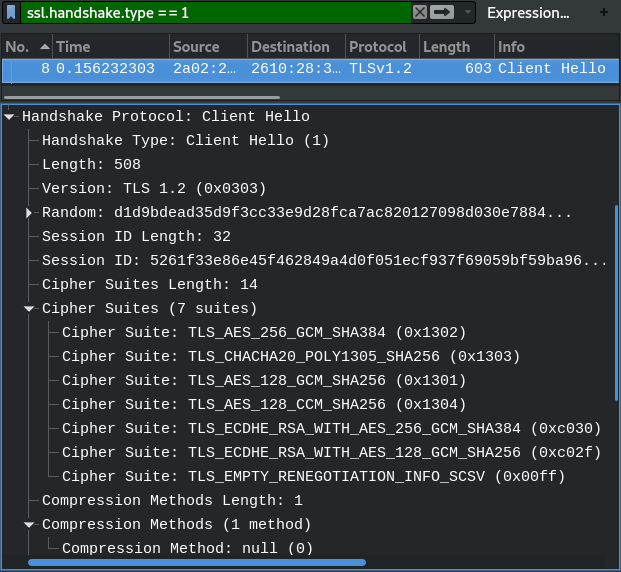New issue
Have a question about this project? Sign up for a free GitHub account to open an issue and contact its maintainers and the community.
By clicking “Sign up for GitHub”, you agree to our terms of service and privacy statement. We’ll occasionally send you account related emails.
Already on GitHub? Sign in to your account
option 'ciphers ' does not handle several valid ciphers. #3077
Comments
|
I believe the cipher names should be separated by colon (when OpenSSL is used). In your first use case shown above, you separate them with space without quotes, which makes curl treat the second cipher name as a URL. |
|
Yet locating each ciphers between ' ' ' or ' " ' while keeping spaces lead to the same result. |
|
You'll have to use a colon to separate OpenSSL ciphers, @bagder has fixed the doc to clarify this. In the doc it says if this option is used several times the last one will be used and that means for example |
|
I realise that I did not interpret the post illustrated by the link 835a2fe as a comment. In that context I kept searching an unofficial way to make the function perform as desired. One pertinent result I got at last: when specifying multiple cipher names under a same ciphers option (--ciphers), separating them with comma ( Since there is two approaches involving the use of multiple ciphers within a same curl function, and one was documented –the one involving multiple '--ciphers' options–, then approach involving multiple cipher names specified under a same ciphers option (--ciphers) does obviously remain unknown. In that last approach, illustrated here by the command |
curl just accepts whatever string you tell it, and it will pass it on to the TLS library. You can separate them in however way you want and curl won't complain. As long as they're passed as a single string.
I don't think there is.
That just makes the second use override the previous one, that's not really multiple ciphers.
The OpenSSL document says the string is an "ordered SSL cipher preference list", which makes me suspect that the order is the preference. |
Wireshark dumps confirm this. |
|
Time will come also for me to use_Wireshark_, since needed addition of a dnscrypt dissector is to come. You had right intuition regarding SSL ciphers preference order. Yet what could be the use-case that would justify the last option to override the previous ones regarding a command involving multiple |
|
scripting, make your last setting for an option override any previous one. like for example if you set a $CURL variable to use some common options like curl --ciphers foo and then in your script you have $CURL --ciphers bar, or in your curlrc you have --ciphers foo and on the command line you use --ciphers bar in either case bar overrides foo. If you're using Wireshark you can use SSLKEYLOGFILE environment variable which curl 7.56.0+ w/OpenSSL 1.0.2+ supports and then you see the decrypted transfer. |
|
Environment variable performed as intended, I was not able to achieve a relevant test command using curl, here So I finally used that command which is also involved in the following snapshots :
Outputs bring to my knowledge:
Indeed Client'Hello's generated random numbers for the master key are forwarded to specified file: Surprisingly the server does not pick up from client's available ciphers option 0xc030 despite Qualys SSL Labs informed it to be supported. |
|
That ClientHello does not look as it should if you are using curl with OpenSSL. Turn on verbose mode If you don't see that line it's possible you are using curl with an SSL backend that doesn't support cipher selection or requires a different format. Different issue:
You can set TLS 1.3 ciphers by using option --tls13-ciphers since 7.61.0. I will clarify this in the CIPHERS doc. |
|
Using Might it be a way to get a list of cipher suites supported by server using the v option in curl command ? For instance regarding a cipher suite using Chacha –0x1303– which is supported by client curl and supported by OpenSSL, using TLS13-CHACHA20-POLY1305-SHA256 in curl command. |




I did this:
I specified two valid ciphers (ECDHE-RSA-AES128-GCM-SHA256, ECDHE-RSA-AES256-GCM-SHA384) according to undocumented syntax in Curl manual, with purpose to get the last one selected in the connection. Option is used once.
curl(1) – sample
I expected the following
a valid output as in:
curl/libcurl version
operating system
The text was updated successfully, but these errors were encountered: